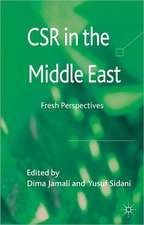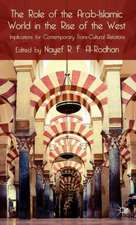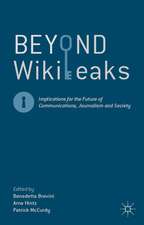Sociology in Austria since 1945: Sociology Transformed
Autor C. Flecken Limba Engleză Hardback – 3 dec 2015
Din seria Sociology Transformed
-
 Preț: 383.93 lei
Preț: 383.93 lei -
 Preț: 383.93 lei
Preț: 383.93 lei -
 Preț: 381.98 lei
Preț: 381.98 lei -
 Preț: 382.75 lei
Preț: 382.75 lei -
 Preț: 384.31 lei
Preț: 384.31 lei -
 Preț: 381.59 lei
Preț: 381.59 lei -
 Preț: 382.36 lei
Preț: 382.36 lei -
 Preț: 385.62 lei
Preț: 385.62 lei -
 Preț: 418.83 lei
Preț: 418.83 lei -
 Preț: 419.43 lei
Preț: 419.43 lei -
 Preț: 385.25 lei
Preț: 385.25 lei -
 Preț: 451.48 lei
Preț: 451.48 lei -
 Preț: 385.62 lei
Preț: 385.62 lei -
 Preț: 383.33 lei
Preț: 383.33 lei -
 Preț: 382.36 lei
Preț: 382.36 lei -
 Preț: 416.54 lei
Preț: 416.54 lei -
 Preț: 385.25 lei
Preț: 385.25 lei -
 Preț: 237.37 lei
Preț: 237.37 lei -
 Preț: 347.04 lei
Preț: 347.04 lei -
 Preț: 349.91 lei
Preț: 349.91 lei -
 Preț: 352.41 lei
Preț: 352.41 lei -
 Preț: 354.54 lei
Preț: 354.54 lei -
 Preț: 315.95 lei
Preț: 315.95 lei -
 Preț: 343.00 lei
Preț: 343.00 lei -
 Preț: 382.75 lei
Preț: 382.75 lei -
 Preț: 450.88 lei
Preț: 450.88 lei -
 Preț: 483.92 lei
Preț: 483.92 lei -

-

-

Preț: 382.57 lei
Nou
Puncte Express: 574
Preț estimativ în valută:
73.22€ • 75.46$ • 61.82£
73.22€ • 75.46$ • 61.82£
Carte tipărită la comandă
Livrare economică 01-15 martie
Preluare comenzi: 021 569.72.76
Specificații
ISBN-13: 9781137435866
ISBN-10: 1137435860
Pagini: 105
Ilustrații: VIII, 97 p.
Dimensiuni: 140 x 216 x 10 mm
Greutate: 0.29 kg
Ediția:1st ed. 2015
Editura: Palgrave Macmillan UK
Colecția Palgrave Pivot
Seria Sociology Transformed
Locul publicării:London, United Kingdom
ISBN-10: 1137435860
Pagini: 105
Ilustrații: VIII, 97 p.
Dimensiuni: 140 x 216 x 10 mm
Greutate: 0.29 kg
Ediția:1st ed. 2015
Editura: Palgrave Macmillan UK
Colecția Palgrave Pivot
Seria Sociology Transformed
Locul publicării:London, United Kingdom
Cuprins
1. Sociology in Austria: Introduction
2. A Remarkable Past
3. A decade of backwardness
4. A missed opportunity
5. Years of reforms
6. The eye of the needle in recruiting
7. Extramural social research
8. Concluding remarks on 'social impact' and 'scholarly success'
2. A Remarkable Past
3. A decade of backwardness
4. A missed opportunity
5. Years of reforms
6. The eye of the needle in recruiting
7. Extramural social research
8. Concluding remarks on 'social impact' and 'scholarly success'
Recenzii
"Christian Fleck, a leading historian of sociology, has created a fascinating sketch of the Austrian experience that will be widely appreciated by all like-minded scholars, especially given the unique characteristics of his country's approach to the discipline. While very attentive to minutia, about which he knows more than anyone else, Fleck never loses sight of the big picture - the challenges that sociology poses to any society in which it seeks to become institutionalized. Fleck's book could serve as model for other national histories of social science." - Alan Sica, Penn State University, USA
"This is a highly personal overview by a perfectly informed and sharp minded observer of the Germanic academic scene on Austrian sociology of the 20th century, including a very critical study of the promotional system of local universities (liable to reproduce mediocrity). The stress is laid both on intellectual and institutional developments. The story goes from prestigious, mostly extra-mural (non academic) beginnings with heavy participation of Jewish luminaries, to the disastrous break of the 1938 Anschluss, succeeded by ups and downs of a difficult and in part failed reconstruction of academic autonomy. Indeed the post-war years were marked by limited de-Nazification, continuously burdensome academic conservatism, largely linked to the pervasive influence of the Catholic Church and the impact of political power games between the two ruling parties (the infamous 'Proporz' system). All this seems to have curbed innovative scholarly productivity as well as the heuristic reception of new Western paradigms, in spite of the growth of student numbers (particularly after the academic reforms of the 1970s) and the emergence of a network of research centers outside universities, beginning with the 'Institute of Advanced Studies', a prototype of sorts. (The latter was funded by the Ford Foundation via the intervention of a by then famous emigrant Paul Lazarsfeld.) All in all a fascinating in-depth report on a singularly deviant case of a dubiously 'national' intellectual history. The melancholy conclusion of the author points to 'dead ends, failures, frauds, undeserved appropriation and incompetence' in an European society ranking nowadays among the most prosperous in economic and social terms." - Victor Karady, CNRS, France and Central European University, Hungary
"For the last half-century, American sociologists have taken the existence of the basic discipline for granted and have therefore tended to overlook the difficult political, cultural, religious and intellectual obstacles that had to be overcome. Fleck's history of sociology in Austria provides a useful antidote to these bloodless 'understandings.' The post-war development of 'Austrian sociology' (Fleck eschews this term because 'the entity which goes by the name "Austrian' sociology...lacks a specific uniformity") was hobbled by the remnants of the Nazi past and decimated by persecution, racism, anti-Semitism, a mass out-migration of Austrian intellectuals to the West (with no formal policy ever put in place to encourage their return), and the heavy hand of the post-war Catholic Church. American readers will also be surprised by the large number of Austrians who became prominent in American sociology: Alfred Schutz, Hans Zeisel, Otto Neurath, Joseph Schumpeter but above all others Paul Lazarsfeld who was instrumental in establishing empirical sociology in the US. In the 1950s, there were many more former Austrians holding professorial posts in the US than there were sociologists teaching in Austrian universities – several dozens (at least) versus two. American sociologists will be surprised to learn that what we now understand as 'American sociology' was largely an import brought to the US by various European conflicts from about 1890 forward and that not all of the key figures were German, French or British." - James Wright, Editor in Chief, International Encyclopedia of the Social and Behavioral Sciences
"This is a highly personal overview by a perfectly informed and sharp minded observer of the Germanic academic scene on Austrian sociology of the 20th century, including a very critical study of the promotional system of local universities (liable to reproduce mediocrity). The stress is laid both on intellectual and institutional developments. The story goes from prestigious, mostly extra-mural (non academic) beginnings with heavy participation of Jewish luminaries, to the disastrous break of the 1938 Anschluss, succeeded by ups and downs of a difficult and in part failed reconstruction of academic autonomy. Indeed the post-war years were marked by limited de-Nazification, continuously burdensome academic conservatism, largely linked to the pervasive influence of the Catholic Church and the impact of political power games between the two ruling parties (the infamous 'Proporz' system). All this seems to have curbed innovative scholarly productivity as well as the heuristic reception of new Western paradigms, in spite of the growth of student numbers (particularly after the academic reforms of the 1970s) and the emergence of a network of research centers outside universities, beginning with the 'Institute of Advanced Studies', a prototype of sorts. (The latter was funded by the Ford Foundation via the intervention of a by then famous emigrant Paul Lazarsfeld.) All in all a fascinating in-depth report on a singularly deviant case of a dubiously 'national' intellectual history. The melancholy conclusion of the author points to 'dead ends, failures, frauds, undeserved appropriation and incompetence' in an European society ranking nowadays among the most prosperous in economic and social terms." - Victor Karady, CNRS, France and Central European University, Hungary
"For the last half-century, American sociologists have taken the existence of the basic discipline for granted and have therefore tended to overlook the difficult political, cultural, religious and intellectual obstacles that had to be overcome. Fleck's history of sociology in Austria provides a useful antidote to these bloodless 'understandings.' The post-war development of 'Austrian sociology' (Fleck eschews this term because 'the entity which goes by the name "Austrian' sociology...lacks a specific uniformity") was hobbled by the remnants of the Nazi past and decimated by persecution, racism, anti-Semitism, a mass out-migration of Austrian intellectuals to the West (with no formal policy ever put in place to encourage their return), and the heavy hand of the post-war Catholic Church. American readers will also be surprised by the large number of Austrians who became prominent in American sociology: Alfred Schutz, Hans Zeisel, Otto Neurath, Joseph Schumpeter but above all others Paul Lazarsfeld who was instrumental in establishing empirical sociology in the US. In the 1950s, there were many more former Austrians holding professorial posts in the US than there were sociologists teaching in Austrian universities – several dozens (at least) versus two. American sociologists will be surprised to learn that what we now understand as 'American sociology' was largely an import brought to the US by various European conflicts from about 1890 forward and that not all of the key figures were German, French or British." - James Wright, Editor in Chief, International Encyclopedia of the Social and Behavioral Sciences
Notă biografică
Christian Fleck is Associate Professor at the Department of Sociology, University of Graz, Austria.
Textul de pe ultima copertă
Sociology in Austria has been frequently affected by political developments in the country. This first history of sociology in Austria examines the impact of the break-up of the Habsburg Empire and of two consecutive dictatorships, which destroyed academic freedom by means of forced migration and imprisonment. Even after 1945 the re-established Second Republic did not dismiss professors promoted during the Nazi period, and failed to invite exiled academics to return home. The author argues that the result has been a continuation of favouritism and conformism, with compliance to political regimes sanctioned at the expense of meritocracy and that in the light of this chequered past we should celebrate instances of de-institutionalization.














